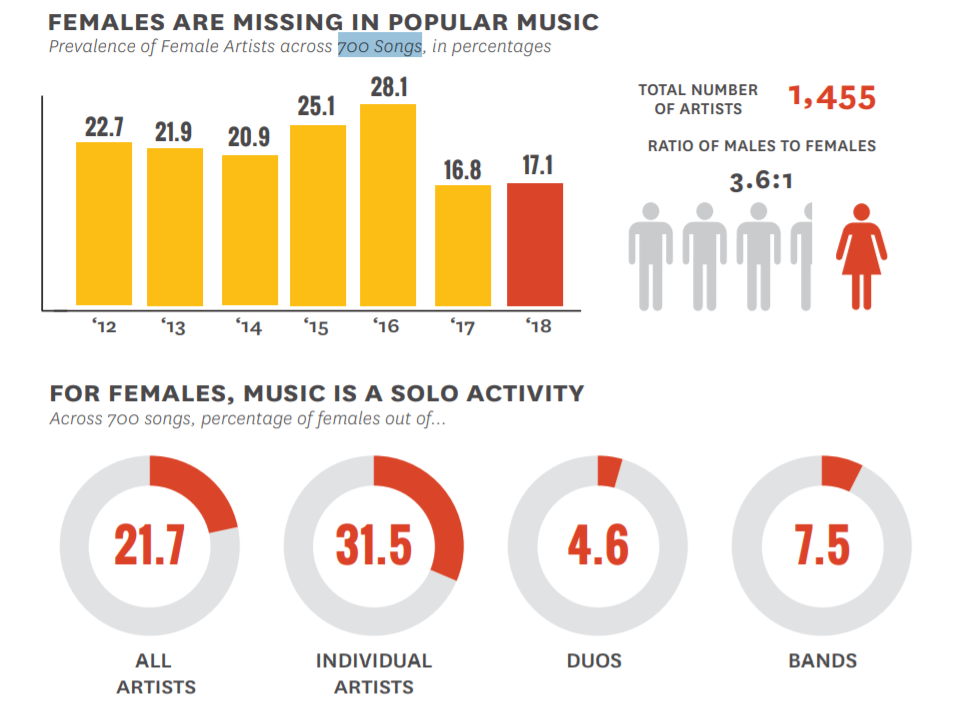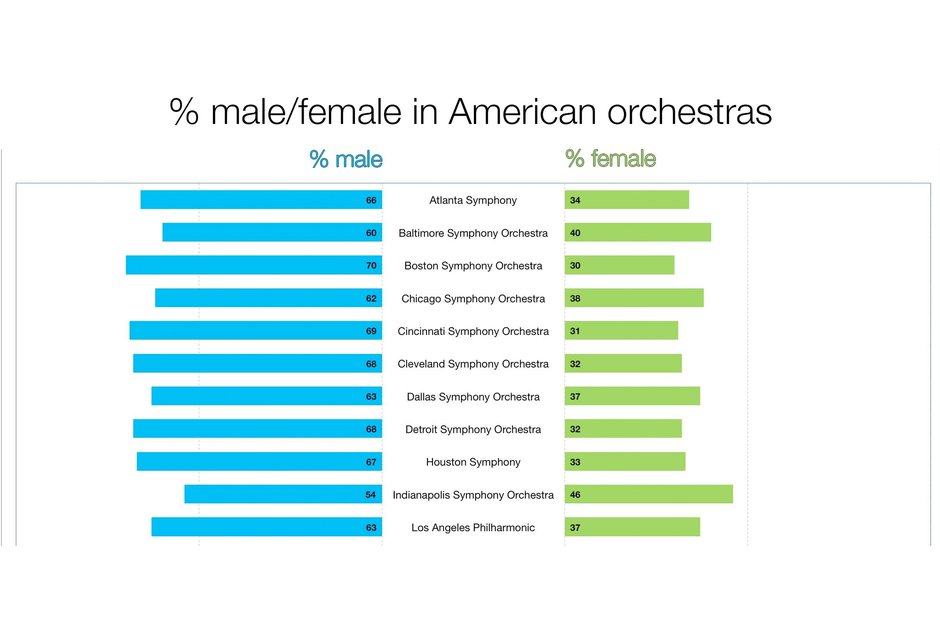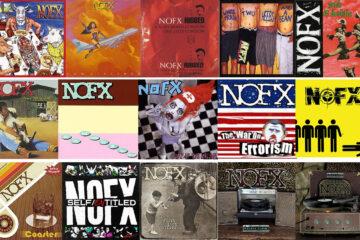Pretty much all Music Festivals have been cancelled in 2020.
(How many blog posts this year am I going to start with that sentence?!)
However, as we move into the last quarter of the year, we are now starting to see some line-ups being released for the 2021 festivals.
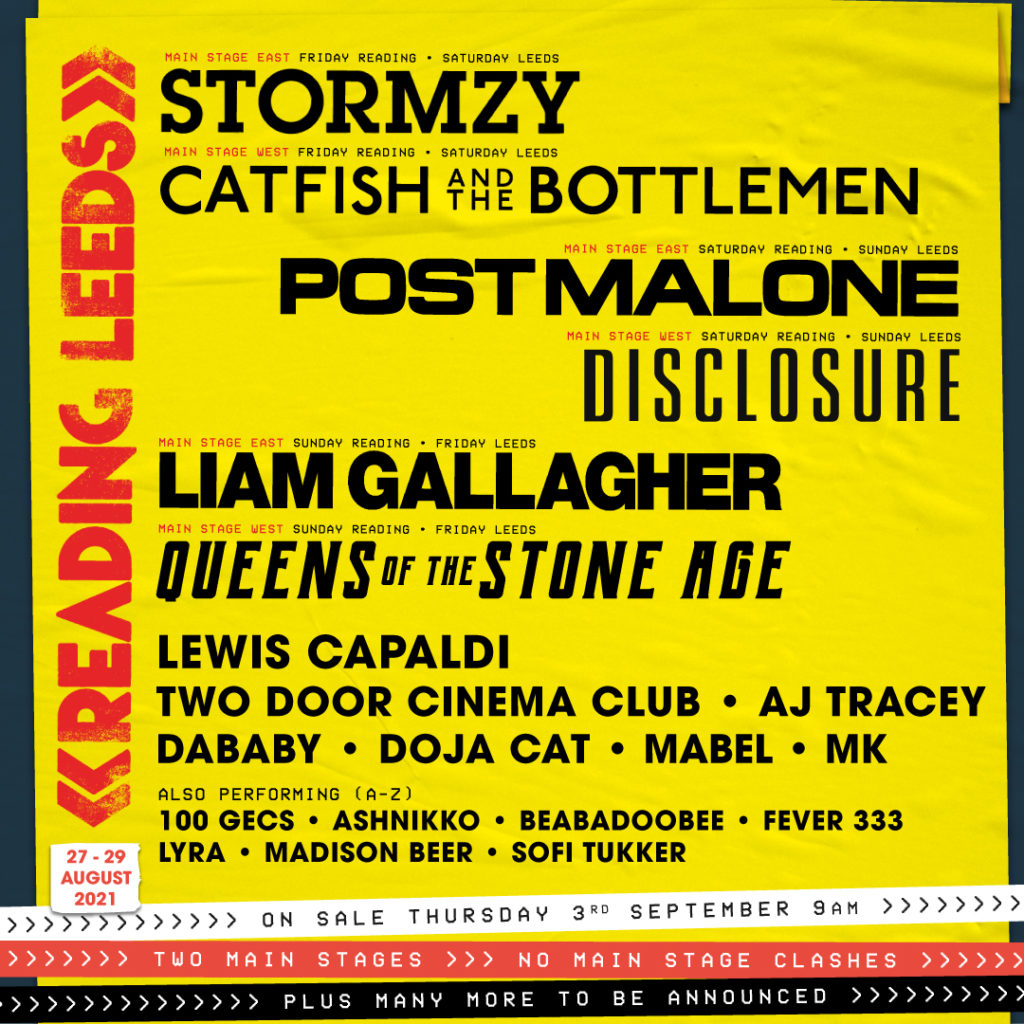
If they actually happen, anyway…
There have actually been some interesting changes within these festival announcements:
- Download festival switched Iron Maiden for Biffy Clyro
- Leeds & Reading have opted for twin main stages next year
- Despite rumours, Glastonbury 2021 will take place in June, not September
But one negative thing that is getting attention is the serious lack of female artists on these line-ups.
In this blog post, I want to discuss this issue and explain why it’s important to get female representation on Festival lineups.
I’ll give you some stats and figures to prove the point, some ways in which people are fighting for it, and also some rebuttals to the arguments I always hear when this topic is brought up.
So if you are already coming up with a response to this article, please wait and read it all first.
Women in music
Women have a harder time breaking into music than men do. This is a fact.
Thats not to mention the objectification, sexual assault and pay discrepancies between men and women in music, though don’t think they aren’t also huge issues.
But I’m talking about the entry bar for women into music being very high, and it’s usually based on sexism, whether realised or not.
Popular music is a clear way to see where men have a disproportionate say is within the songs themselves. One 2018 report from the Annenberg Inclusion Initiative found that within popular music, only 12.3% of songwriter credits were women.
It’s not just popular music though, even within the world of classical music, women do not have an even playing field.
A study from Harvard tested this during Orchestra performance auditions.
They found that by letting all musicians audition from behind a curtain found that female hirings went up, showing a correlation between low-hiring and being female.
Music Festivals
One way in which high bar for entry manifests itself is at music festivals. A trend online over the last few years has been to show festival line-up posters with all the bands with no female members blacked out.

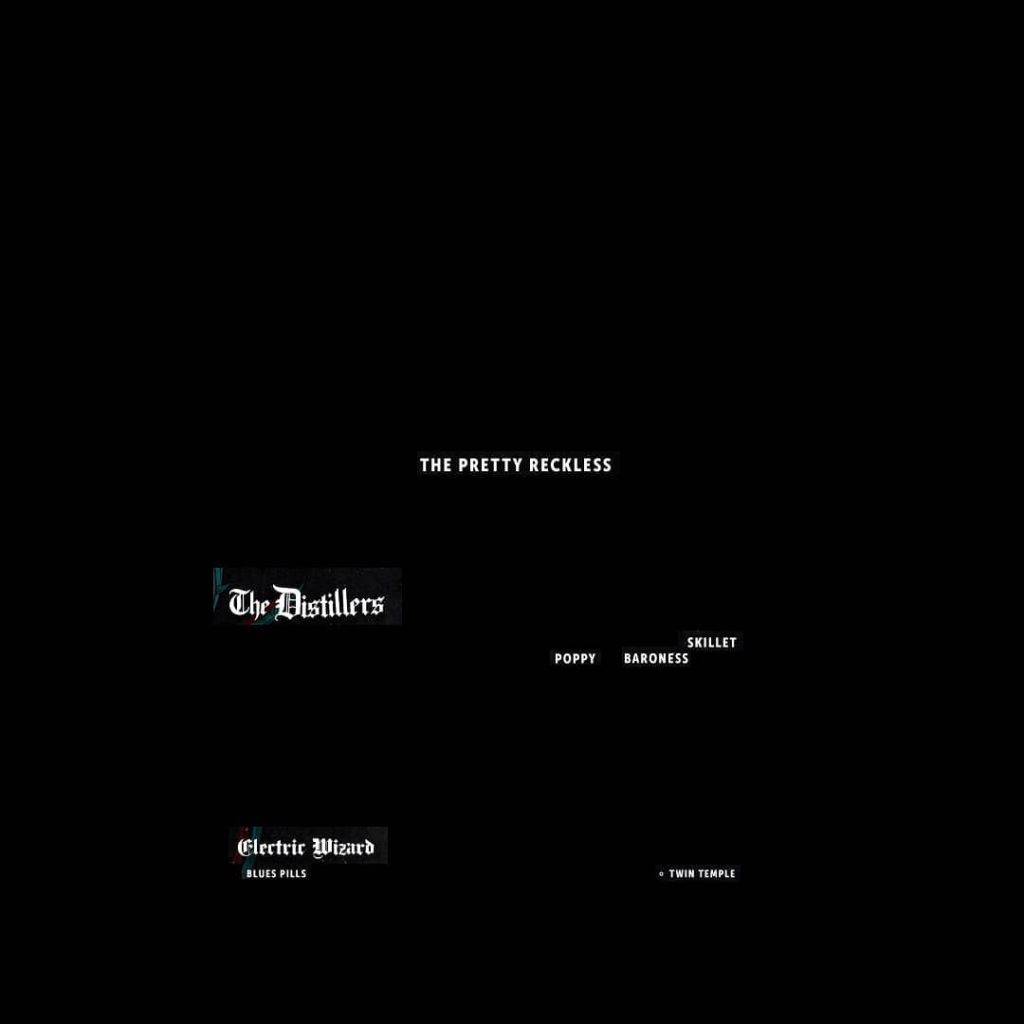
It is a strong visual to show how under-represented women are in bands at music festivals.
Now, this problem isn’t due directly to music festivals, and it isn’t directly the fault of the Music festival organisers, it’s just that these posters are a good way of showing the effect that this has.
This issue is getting wider recognition of late, and there are some movements about helping fix the situation.
Movements
Get a woman to headline download 2022
This Facebook page was created by two women who love Download Festival.
They released however that in all its 17 years, Download has never had a woman headline act. It has hosted 43 headliners, and yet none of them were women.
Not just headliners, but female representation in general has been sorely lacking at the festival. For example, 2014 saw only one woman on the main stage at the festival.
The Facebook page shares stories about potential future headliners and generally getting great female artists some exposure.
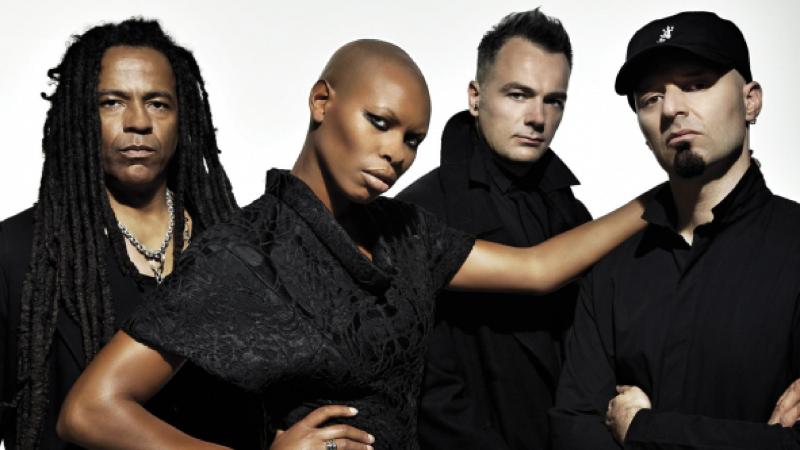
The Facebook page has had to change its name twice since it was created.
First aimed at getting a female headline for 2020 (which was cancelled anyway), then to 2021, and since the recent announcement, they have changed their name again for 2022.
Here’s hoping they do not need to change the name again before they succeed in their goal.
HearHer Festival
This festival has an all-female lineup. The festival first took place in October 2019 in Dorset and was a huge success.
The festival boasted acts like SHURA, Grace Savage and a DJ set by KT Tunstall.

Sadly the festival was cancelled for 2020 (for obvious reasons) and we can only hope it takes place again in 2021.
So there are some pushes to get more female artists at music festivals, which is great.
Arguments against it
But for every good thing, there are its detractors.
People who think that there is no issue with festivals not booking many female acts and it’s not really anyones fault.
So if you have found yourself arguing against this article, I wonder if you have found yourself thinking the following arguments…
“If they were good enough, they would be booked“
At first glance, this is a sensible and logical argument. No festival wants to book sub-par acts.
They want to please their audience and get them back the following year.
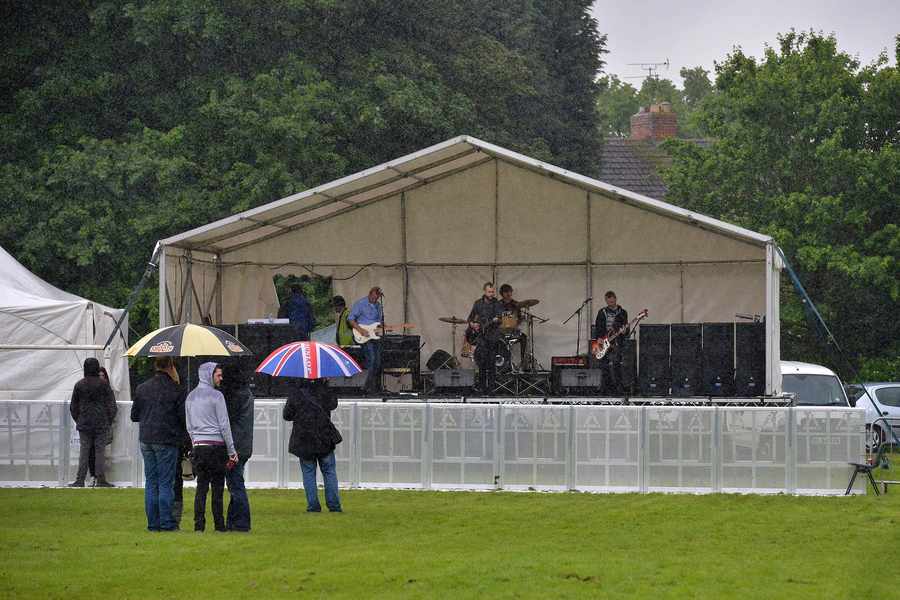
However, this argument is focusing on the symptom, not the disease.
I agree that it is not directly the festival’s fault for not booking female artists. The fault lies with the industry for making it more difficult for women to get started.
This then has a pile-on effect meaning that there are fewer successful bands with female members around for festivals to book.
However, festivals could help the situation by ensuring they do find good bands with female members to play, so that they can help spread the word about them and help promote the idea of music as a hobby for women.
On to the next argument I see a lot come up around these discussions…
“Female fronted isn’t a genre“
This is a phrase that is absolutely correct and I agree with it 100%.
Sometimes people like to group bands like Paramore and Nightwish. together just because their lead singer is female.

However, when this argument gets brought up in this debate, it is totally in the wrong context serves only to silence a serious discussion.
Talking about ‘female fronted’ bands as a genre is wrong. It demeans their art and groups all women together as if they are the same. It is the wrong outlook.
However, I am talking about bands with female members, lead singer or not. Female-fronted may be a useful term here, because it is literally what I am talking about.
Analogy
It is well known that women make up a small percentage of those working in STEM fields. So there is a push to get women interested in the subjects from a younger age.
It’s a similar issue, but one that everyone agrees with. When that topic comes up, you don’t hear people arguing:
“Female scientist isn’t a job title!”

Why not?
Because it’s an irrelevant comment and it diverts the topic.
Female fronted isn’t a genre, but we aren’t talking about genre. We’re talking about women in music. It’s a different conversation.
These arguments may be well-meaning and made in good faith, but all they do is divert the topic from the actual issue and stop any progress being made.
Wrap Up
Women have a harder time getting into music than men do.
And even then, building up a following is harder and getting opportunities for wider exposure are not abundant.
Music Festivals can help this by booking more of them and helping give them a platform in an industry that doesn’t seem to want to.
So support female artists when you can: advocate for more female artists at festivals and support festivals like HearHer when they happen.
